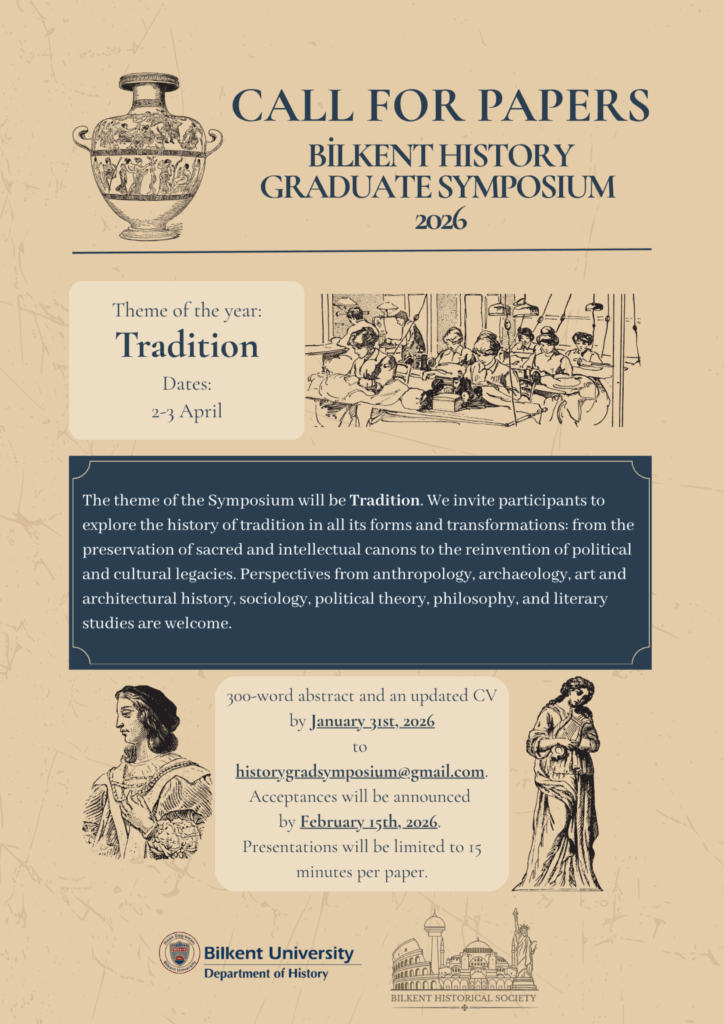
CALL FOR PAPERS
Dear Colleagues and Students,
The Department of History at Bilkent University and the Bilkent Historical Society invite all graduate students to theBilkent History Graduate Symposium which will be held in2nd and 3rd of April, 2026. Those who would like to participate in the Symposium should send a 300-word abstract and an updated CV by January 31st 2026, to historygradsymposium@gmail.com. All proposals will be reviewed by the symposium committee and the accepted abstracts will be announced by February 15th 2026. Presentations will be limited to 15 minutes per paper.
The theme of this year’s Symposium will be Tradition. Tradition stands at the intersection of continuity and change, shaping how societies remember, reproduce, and reinvent themselves across time. It is the medium through which authority, belief and practice are transmitted as well as the terrain upon which they are contested. Far from being static inheritance, tradition is an active process of selection, adaptation and reinterpretation, which is mediated by power, memory and imagination.
Tradition legitimizes institutions, sustains political orders, and defines collective identities. Yet it also provokes reform, dissent and innovation. What we call “tradition” often emerges precisely at moments of crisis or transformation when political traditions are rearticulated to justify new forms of rule, or when cultural practices are re-framed as authentic legacies of the past. The invention of tradition thus becomes not an exception but a central feature of historical change revealing how societies construct continuity to navigate rupture.
We invite participants to explore the history of tradition in all its forms and transformations: from the preservation of sacred and intellectual canons to the reinvention of political and cultural legacies. Perspectives from anthropology, archaeology, art and architectural history, sociology, political theory, philosophy, and literary studies are welcome.
Possible topics include, but are not limited to:
- Theories and methodologies of tradition: continuity, rupture and invention
- Political traditions: authority, legitimacy, and constitutional memory
- The invention of tradition and the politics of authenticity
- Tradition and modernity: reform, secularization and modernization
- Tradition, memory and collective identity
- Cultural heritage, preservation and the politics of conservation
- Gender, family and the reproduction of social norms
- Artistic and literary traditions: adaptation, citation and originality
- Religious traditions and reform movements
- Oral traditions and the dynamics of storytelling
- Tradition and colonial encounters: appropriation hybridization, resistance
- Technology, media and the reinvention of tradition
